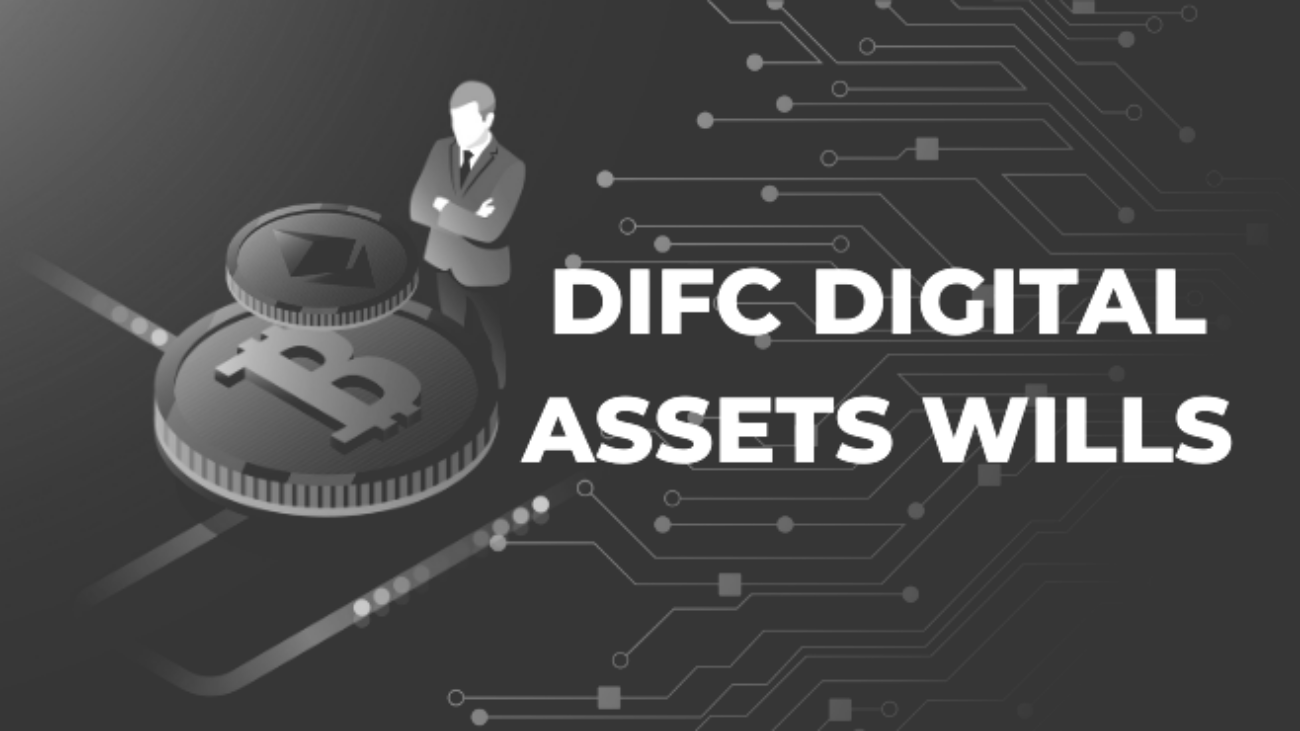Traditional wills often fail to address the technical and legal complexities of digital ownership, leaving heirs unable to access or claim these assets. With the increased popularity of crypto and digital assets within the last few years, the ability to transfer and treat digital assets as you would more traditional assets, such as property, funds or shares, has become a pressing concern for many individuals and investors. Therefore, In October 2024, the Dubai International Financial Centre (DIFC) introduced the innovative Digital Assets Will, providing a groundbreaking framework for distributing digital assets upon passing that resolves these challenges, addressing the critical gaps in estate planning.
The Problem of Digital Asset Inheritance
Digital assets pose unique risks in estate planning:
- Loss of Access: Without explicit instructions, beneficiaries may lack the technical means (e.g., private keys) to access digital wallets.
- Legal Ambiguity: Many jurisdictions lack clear laws recognising digital assets as transferable property.
- Security Risks: Centralized exchanges or custodial wallets may freeze accounts upon the owner’s death, leading to permanent asset loss.
The DIFC’s Legal Framework
The DIFC Digital Assets Will operates under Digital Assets Law No. 2 of 2024 and integrates three key components:
- Non-Custodial Wallet: Built on Hedera Distributed Ledger Technology (DLT), it allows testators to retain complete control of assets during their lifetime while freely allocating them to beneficiaries as specific gifts upon their passing.
- Tejouri Integration: Digital Assets Wills are linked with the DIFC’s Tejouri digital vault, which securely stores data in encrypted formats. Tejouri provides a unique platform that functions as an online safe for data, supported by a state-of-the-art onsite DIFC data centre and a secondary UAE-based backup data centre. This integration enhances security and accessibility for testators and beneficiaries.
- Online Registration: The entire process, from drafting to registration, is conducted online. Testators can electronically sign their wills via video conferencing in the presence of witnesses. Once registered, the will is securely stored in the DIFC Courts’ database.
Key provisions include:
- Support for BTC, ETH, USDC, USDT, MATIC. In the future, the DIFC wallet expects to support NFTs such as ERC 721, ERC 1155, Ordinals and HTS.
- Flexibility to update beneficiary allocations without revising the entire will.
How the Digital Assets Will Works
Case Study: John, an investor, uses the DIFC Digital Assets Will to:
- Register: He drafts his will online, listing his Ethereum holdings and NFTs as “specific gifts” to his children.
- Assign Assets: Using the non-custodial wallet, he links his crypto wallets and allocates 60% of his Bitcoin to his spouse and 40% to a charitable trust.
- Secure Storage: His will is encrypted and stored in Tejouri, accessible only to his designated executor.
Upon his passing:
- The DIFC Courts validate the will via video-conferencing with witnesses.
- Executors receive access credentials, ensuring seamless asset distribution without third-party interference.
Advantages and Implications
The DIFC Digital Assets Will solves critical problems by:
- Ensuring Control: Testators maintain ownership until death, preventing unauthorised access.
- Providing Legal Clarity: Digital assets are recognised as property under DIFC law, reducing disputes.
- Enhancing Security: Decentralized storage and biometric authentication mitigate hacking risks.
For jurisdictions like the UAE, where 23% of residents hold digital assets, this framework positions Dubai as a leader in fintech innovation.
Why This Matters
The DIFC’s solution exemplifies how legal systems can adapt to technological advancements. By addressing ownership, access, and enforcement, the Digital Assets Will offers a replicable model for other jurisdictions grappling with similar challenges.
The DIFC Digital Assets Will represents a significant advancement in estate planning for the digital age. The UAE is one of the premier destinations for those seeking an organised, safe and promising digital investing environment. By addressing the complexities of digital asset inheritance with innovative solutions like non-custodial wallets and global accessibility, the Introduction of the Digital Assets Will positions Dubai as a leading hub for digital asset management and legal innovation. For individuals, it provides peace of mind—ensuring their digital legacy is preserved as meticulously as their physical one. It also strengthens Dubai’s reputation as a forward-thinking jurisdiction in the evolving world of digital finance.
How We Can Help
If you have any questions or require assistance with drafting and registering a Will, either a Simple Will or a Digital Assets Will, please get in touch with us at here.


